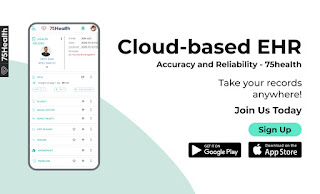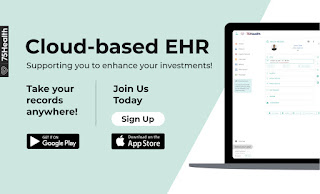How Security Measures Enhances The Access Of EHR Software
Privacy
concern is the most authoritative barrier for physicians and providers to enter
the digital healthcare industry. EHR Software includes all current regulations for analyzing and reviewing
patient information and medical records. The security techniques conduct severe
searches on source points, clinical centers, laboratories, and other sensitive
documents.
In
general, security measures are classified into three different types -
administrative, physical, and technical systems. Confidentiality is promised
and protected by Health Insurance Portability and Accountability Act (HIPAA). The
policies cover different ranges from a computer location to firewall usage to
protect patient information.
The
protocol helps the management in receiving full legal protection and faster reimbursements.
Government offers strong incentives for EHR
Software usage in adopting the latest healthcare system for better and more
accurate service.
A
healthy cyber-hygiene process can change the data breach opportunities. This
healthcare tool measures the balance between all healthcare vitals and
generates a complete report on patient health status. It can take full control
of patient profiles and inform the account admin about the potential flaws in
cyber security, data compromising, encryption, viruses, and hackers.
Phishing
attacks are the most common threat for web-based applications where users are
forced to click random links luring them for professional benefits. Attending
regular security-based training can make healthcare professionals easily
identify any kind of phishing attacks through a sophisticated process.
Doctors
must evaluate the EHR file-share requests before giving them access to take the
information. Web-based Electronic Health
Record Software has minimum chances to fall for malware and ransomware attacks.
The IT team are looked after the downloaded files, software vulnerabilities,
encrypted traffic, etc.
In
general, EHR and EMR Software rely on up-to-date information to give accurate patient
care. This need gives the fact that hospitals own full access to patient records
as cloud technology improves the care through collaborative efforts. It ensures
that private data is secured and that HIPAA compliance is effectively matched.
EHR Software enhances administrative controls on workflow
policies and employees' capabilities. New features are alerting organizations
with regular audit reports and monitoring status. Applying data encryption exceeds
traditional security systems and monitors suspicious behavior.



Comments
Post a Comment